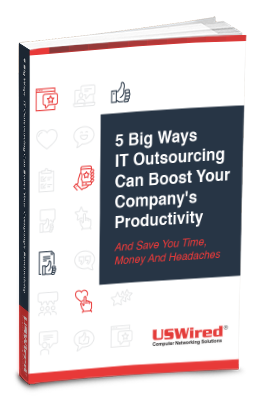Back in the day, many companies hesitated over adopting a remote working policy, as it put their confidential data at risk. But because of the rapid spread of COVID-19 in America, businesses have allowed their employees to work from home and are reaping its benefits.
For instance, the California Department of Human Resources (CalHR) believes that remote working not only reduces traffic congestion, operational costs, and employee absenteeism, but it also promotes good health and improves employee retention.
However, there are some cybersecurity risks associated with remote work, such as data theft, and malware attacks. You need to set appropriate rules for your company to safely enjoy remote work. Here are some things you should consider:
#1. Mobile device management (MDM)
Allowing employees to use their personal smartphones, tablets, and laptops is a good alternative to setting up entire workstations at home, and helps reduce hardware costs. Employees can switch between their PC and smartphone, giving them the freedom and convenience to use any device that keeps them productive.
In line with that, MDM is essential for the regulation of portable devices to enforce security rules. It ensures that company data is always protected from breaches.
Typical MDM programs allow businesses to:
- Install authentication certificates
- Remotely wipe devices
- Disable features such as location and camera
- Detect missing security patches
- Restrict jailbroken and rooted devices
- Set password requirements
- Manage virtual private networks (VPNs)
Keep a centralized list of all personally or company-owned mobile devices registered on your IT infrastructure. This way, you have better control of who accesses your data and can easily identify the employee responsible for a security breach. Consider mobile device and operating system management tools like Microsoft Intune that regulate the devices being used to access your corporate applications and data.
#2. Data access control
Your business’s data must remain confidential and accessible to only the right people at all times. Maintain control of your information by enabling multifactor authentication (MFA). MFA adds another security layer such as an SMS code, a smartphone prompt, or a fingerprint or facial scan to verify a user's identity.
You can also use access management technologies such as Microsoft Azure to prevent unauthorized users from accessing cloud applications and files. Azure’s Role-Based Access Control (RBAC) system allows IT administrators to give users certain privileges on subscriptions, resource groups, and other corporate data. RBAC helps segregate duties within a team, so only the authorized people can access certain information.
You also need to implement strict auditing, remote monitoring, and reporting to know who is accessing your resources and why they are doing so.
#3. Data encryption
Encryption uses complex algorithms and a triple data encryption standard known as Advanced Encryption Standard (AES).
When your data is encrypted, it will only appear as gibberish to hackers unless they use an encryption key that can decrypt it. Data in transit can easily be stolen, so unencrypted emails and work files sent by remote workers can easily be infiltrated and modified.
Make sure to encrypt everything as much as possible. This includes your emails, company data, and applications.
#4. Virtually partitioned personal devices
Some of your employees may connect to public Wi-Fi networks to do their job. These networks do not have proper security protocols, which cybercriminals exploit for data theft. Hackers are keenly aware that end users don’t typically install security patches, so they take advantage of their negligence.
One of the most effective ways to secure your data is to implement a virtual partition in which work-related data are separated from personal information, and can be managed and wiped when needed. You can also require employees to connect to your corporate VPN if they need to access sensitive company files.
Need help implementing your business’s remote work policy? USWired can help. We’ll be with you every step of the way to ensure that your company data is protected, even if your employees are working from home. To learn more about how our managed services can help your San Jose or San Francisco business, download our FREE eBook today.
Learn how our managed services can help your business!
Before you can honestly consider outsourcing IT management, you need to be 100% confident that it will solve problems and unclog bottlenecks. Our free eBook: 5 Big Ways IT Outsourcing Can Boost Your Company's Productivity covers should get you to that point.




